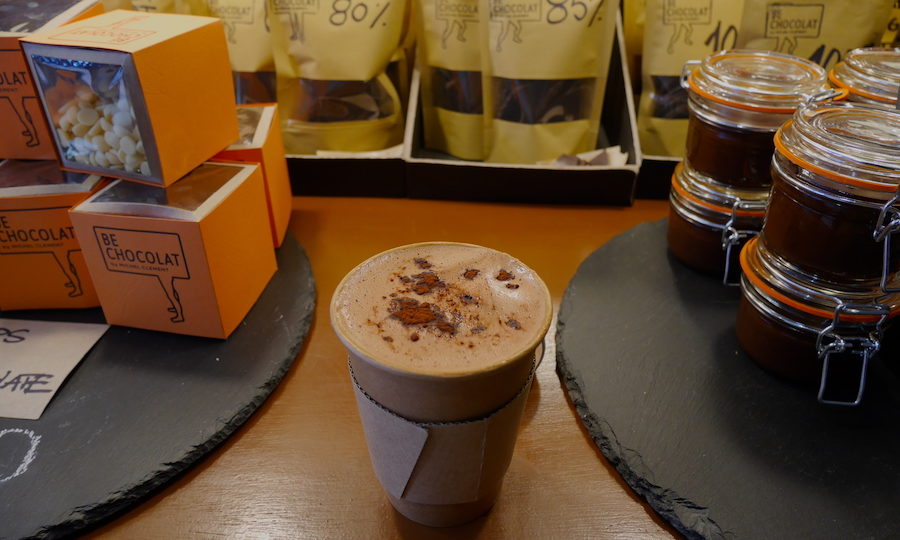[This DrP article was first published on Next Evolution Performance]
Admittedly, it was a strange question. “Can I give you toilet paper”, I asked. “Why are you giving me toilet paper”, came the suspicious reply. “Because. . I bought the wrong one. I need space for 4ply”, I said. “Okkk. You do know it’s not normal to only use 4ply.”
Problem solved. A long time ago, I’d have felt a slight twinge of guilt for my #firstworldproblems. Especially when considering that was happening within the first wave of toilet paper panic buying, and I was letting go of 3ply!
Except that I remember being a postgraduate student who kept a close watch on her finances, and surviving on crappy 2ply. That persisted through the years, until I made a promise to myself that 4ply symbolised my new, better and always-improving life.
(Plus toilet paper is very expensive in England.)
Okay, I know we’re united in hoarding toilet paper around the world. But enough toilet paper talk.
Guilt for #firstworldproblems
There are certain non-negotiables that I have. Prewashed salad, Korres shower gels, Smeraldina sparkling water.
Saying that out loud sounds stupid and even pompous at times, except that they are standards I choose to adhere to.
And sometimes, it feels insensitive to have these standards when there are others struggling. Truth is, apart from this article and possibly a few random laughs, I don’t parade them.
But the problem is, many of us with #firstworldproblems also realise that we only have the lives that we have by design. On honest reflection, my younger self would be proud of how these are now weaved into my everyday reality. We’ve worked hard to create the lives we have.
So I’ve learned to remind myself that everytime I feel a little guilty for what I have or expect, it’s testament to how far I’ve come.
Guilt merely incinerates my energy credits. I choose to live not wasting my energy.
And so I’ve worked with myself and my clients on reframing our #firstworldproblems:
- We’re not excessive in other parts of our lives, we’re allowed to enjoy in some parts.
- We’re not accountable to others; our lives are running healthily in their various areas. That’s more to be proud of.
- Even if we change our lives to have less because we feel guilty, there’s always someone else struggling more than that boundary. It’s a futile exercise.
- These are the fruits of our labour.
- These inspire us to accomplish more, and seek betterment.
More importantly, I now declare that having #firstworldproblems is good. It means that most other things in our lives are stable, we don’t have to worry about them.
This means, I’d rather have my #firstworldproblems any day over other fears and concerns for survival.
Everything else we can stop feeling guilty about
Whilst we’re on this topic, guilt also lives in different shades and nuances:–
Procrastination— let’s face it, the best of us have about 6 hours of productive focus a day. And for most of us, 4. If we’re having other stressors in the background because life happens, or mental health challenges because that’s the human condition, then that number falls. Ditto if we’ve got ADHD-type traits. The truth is, we will procrastinate. So no point expecting yourself to be the perfect robot.The worst way we can deal with procrastination is to pretend we don’t, succumb to it and do things that we regret, and then beat ourselves up further. That compromises our self-worth and mental fitness, and we tumble down the rabbit hole.
The best way to deal with procrastination is to accept that it happens and we might as well use that Procrastination Time to do something we love or are curious about. Even cleaning your house during that time is better than watching 50 cat videos on YouTube and then feeling crappy later. And for the rest of your time where you’ve allocated to proper work, you’re better able to make it count.
What we haven’t done— we beat ourselves up too much about all the things we’ve failed to do, forgotten to do, or didn’t even know we had to do and so didn’t do. In other words, it’s stupidly easy to find fault with ourselves. After all, the brain is wired towards finding and remembering the negative, and with this knowledge, we can short-circuit that. In my work, one way of helping ourselves ‘make amends’ is via what I christen ‘time travel’, where in a quantum physics fashion, change the past. At least for ourselves. It sounds like the stuff of sci-fi fantasies, except it helps people gain wisdom from their past and create closure.
But if you’re not ‘time traveling’ with me, then you can also do something else. You can pay it forward— do something that someone else or your younger self would appreciate. It’s a way better use of your time and energy.
Survivor’s guilt— I’ve seen how survivor’s guilt caused someone to engage in extreme risky behaviour, caused another panic attacks, and yet another deep depression. The thing about surviving something tragic— maybe you weren’t infected in a pandemic, or maybe you were a day too late to be at the World Trade Centre in New York— is that that can play on your psyche. Yes, you’re relieved and grateful to have come out unscathed.
But there’s also other questions playing away in your mind, why not you? Why them? And much as you rationalise that the world is unfair, it’s still painful.
The most unhelpful way to deal with survivor’s guilt is to shut down your experiences and emotions. You’re not alone. It’s time to close that chapter.
Thriver’s guilt— A personal story here. I’ve often wondered what would have happened if I didn’t build my strength up, reconnect with my circle, or if I had been financially dependent when I left a relationship with a psychopath. I was young, relatively naive and in love; and Dark Personality Types have a sophisticated modus operandi that hooks anyone in. But if I didn’t have social, mental or financial resources, I’d most likely be dead and not writing this piece.And then there’s the prevalent school of thought that says that trauma is something that stays with you for the rest of your life, you can at best only manage it whilst living a sad miserable life. And yet I’ve built a vastly different life, rising from the ashes of what happened years ago in my 20s.
But when I saw the difference between my journey and many who are stuck in that loop, I sometimes felt guilty about thriving. I’d be plagued with questions of why was I blessed enough to take the path I did, versus others. And much as I know I’m not the only one who’s thrived, it could feel odd.
Guilt is fundamentally irrational. And so I worked on it with mentors, coaches and therapists, eager to put that demon to bed. What I’ve learned instead is, I can inspire others to thrive; if I were to live smaller or miserably because that’s what I’m ‘supposed’ to, there’s no limit to how miserable I could possibly be, it’s simply a futile race to the bottom.
Catholic guilt— The stories we tell ourselves— that we aren’t even aware of— are often weaved into us from our childhood and generations before us. And we operate in part as puppets of these stories, until we become aware of these.Born a Catholic, Catholic guilt and martyrdom are aspects I actively deprogram myself from.
It’s something clients with a Catholic upbringing and I laugh about, because we’re aware that being automatically guilt for everything and stepping up to take unnecessary responsibility for things that we’re not even involved in, incinerate our energy.
These are simply six types of guilt that can plague us.
And much as we can live with a lot of discomfort— we’re excellent at adapting rather than changing as humans— guilt is another needless burden we can choose to let go of.
Going forward:
- What types of guilt do you resonate with?
- What stories do you tell yourself that keep things at the status quo (or getting worse)?
- What is the cost of continuing to feel and operate that way?
- What would life look like if you had all these energy freed up?
- How can you reframe the things that make you unnecessarily guilty?
- What is your gameplan for mastering your guilt?
- How will you review your progress to know you’re on the right track?
If you’d like to unwire your needless guilt, and be in-control via a signature 8-week program that’s tailored to you, book your free Chemistry Call here.





